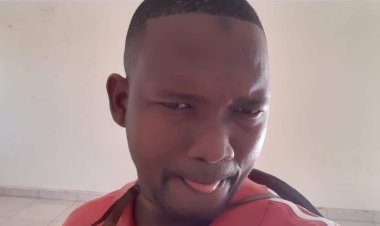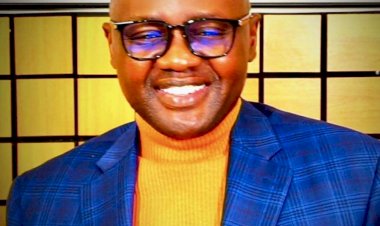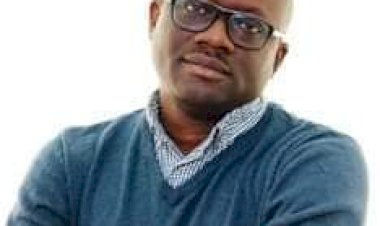Guinea:the unity and organizational effectiveness of the people constitute the fatal weapon of the fight against tyranny of the state

In a spirit of objectivity, we will agree that the idea of the Republic must reject any evil reflex on the language of timber and enroll in an approach of interpretation from government actions. In fact, patriotism lined with the current political circumstances of Guinea, requires the author to stand out from conferences by convenience of local intellectual and religious communities. The moral obligation to reconcile the sovereignty of the state with the values of the Republic, recommends that we know who we are and who we must be. Especially since since independence, we have not been able to use the energy, values and conviction necessary to overcome the conservatism of inertia in the face of the misery of the political system. More fundamentally, the nesting of executive, judicial and legislative powers, on the merits of confiscation of popular sovereignty, has jeopardized the rule of law and transvestite democratic ideal. The ignominious practices of the judiciary and those of the CENI, the institutions normally supposed to comply with the fundamental principles of the separation of powers and without prejudice to their independence vis-à-vis the executive, have begun the confidence of the citizen in the Leaders devoted to scrupulous, who feature the taxpayer's back and systematically the apology of evil to cling to their little shameful political career, are not worthy of leading our country. In short of arguments to justify their failure, they try to restore the blazon by promising to govern otherwise. This rhetoric, at the border of hypocrisy, is vain. In ten years of reign, no one has seen the color of the promises made by a regime at the illegitimate basis. The people have no respect for the moral sense of leaders who are part of an autocratic mode of governance. While the macabre balance of the bloody repression of the populations continues to increase, the State attempts to discard its responsibility by persecuting the citizens who have the merit of exercising their constitutional rights. This perseverance in illegality can be interpreted as a sign of panic of a regime in loss of legitimacy or an attempt by the executive to reign the collective fear with a view to reducing individual freedoms. Is this behavior typical of psychopathic leaders? Everyone had predicted this spectrum of violence and feared that impunity sustainably settles as a means of sustainability of power. In this context, which, of the Guinean State or persecuted citizens, is the true terrorist? The answer is without ambiguity. However, when the applicant, the judge, the Prosecutor of the Republic and the accused are one and the same entity, the verdict is known in advance. Suddenly, to display his arrogance and illusion of superiority, the executive, renowned graduate of democracy, seeks to make '' Freedom Fighters '' emissary goats. Since the advent of Mr. Alpha Conde in power, Guinea fundamentally diverges from the spirit of international treaties with respect to the rule of law, freedom of expression, and freedom of the press. But nothing will change as long as the gendarmes of democracy, in the context of international consultation, will not strike where it hurts. Given the interdependencies between the States of the West African subregion, the brutality of the Guinean State must draw the attention of the heads of state of the liberal companies to the issues of the neo-patrimonial management of power in sub-Saharan Africa. Naturally, no ECOWAS member countries has an interest in what another dark in anarchy. The only way out in Africa from the crisis is to "give Caesar what is in Caesar" by supporting the right and not the imposture. In this purpose, the oppressed peoples of the continent must take their responsibility by pooling efforts in the fight against the arbitrary exercise of power. We no longer have the leisure to leave psychopaths handle our countries. African francophone obedience states with structural deficiencies on all plans, have traditionally have at their heads fundamentally comprehensive leaders. However, clinical observation shows that wherever we meet hatred, there is inevitably a form of mental suffering. Exhibiting chronic psychic disorders, the leaders of these countries are the opposite of a perfectly balanced person to exercise power. Imbus of their person, manipulators, affabulators and narcissistic, they do not feel guilt or shame. For them, truth and empathy are concepts from another planet. Notorbously incompetent and unable to earn their living on the sweat of their forehead, they think they must hold the monopoly of state power. In this Macabre Design, they do not hesitate to exploit weak spirits, to exercise violence, or to use massive fraud to access power or maintain it. These character traits perfectly define Guinean successive leaders. Ten years of lies, social misery, bloody oppression and diversion of public money, do not seem sufficient to reverse force relationship between rulers and governed. This state of affairs is indicative of a Guinean society accomplice, late on its peers in the subregion. Bringing political crises into Guinea to an ethnic problem tendentious. The root causes of the evils that afflict our society are essentially political and institutional, with a society uncomfortable in its fight against autocracy. While most guineans believe that they are Democrats, the notion of citizen conscience, an indispensable bulwark against abuse of power, are slow to radiate in the country. The disproportionate submission of populations coupled with the aphasia of the Guinean intellectual community, is for the least stiff! A society that systematically transgress the natural rules of solidarity against the drift of the rule of law, remains in the darkness.
Today, you need a patriotic jump and a solidarity reflex of unprecedented magnitude for breathing cancer that gnaws our society. By our inaction before the "massacre" of democracy, we annihilate any ambition of socioeconomic development of the country. In addition, in missing an ethical reflection on our own responsibility and the functioning of government authorities, we have helped to create a society where duplicity, hypocrisy, cowardice, and mediocrity have gradually institutionalized in the The objective of the '' mbatulas '' is to infiltrate the official circuits of the state to participate in the sharing of the cake in defiance of respect for Republican principles. To advance this calendar, they do not hesitate to flatter the imposture of tyrants or to accommodate it. For fear of reprisals, others remain terminated in a guilty silence. How will fear change camp if we do not dare to face arbitrariness? If we do not change our shameful habits, all the values on which the rule of law is based may collapse in favor of the double influence of narcissism and greed. Speaking about the greatness of the brave, as opposed to the cowardice of the weak, Ghandi said that "where there is no choice between cowardice and violence, I will advise violence." However, he never brandished violence as a key element of his fight against the servitude of his people. Doped by ten years of impunity, the incultations, the orders of the authorities of the Republic, could claim the opposite in a purpose of intimidating the author. Error. The only crime I am guilty is to have the courage to paint the image of a Guinean society with antinomic behavior to the spirit of unity that revives the patriotic feeling before the arbitrary exercise of power. Such a society is condemned to the bondage, to the greatest happiness of the impostors. Beyond the shared feeling of belonging to the same country, patriotism is also daring out of its daily comfort to face injustice, in the same way legalized. The criteria that make unity and belief The nerve of social stability and development "are drawn from the cultural and religious background of society (Rich, 1994). This "background", according to the author, "constitutes the collective ideological superstructure as a corpus of truths to guide the being, to think and act of all". Despite the fact that we are allegedly committed to democratic principles and religion, the local sociocultural context in which the impunity of the Guinean state is exerted that our country is one of those societies where the notions of patriotism, of These contradictions, both politically and socio-economic and ideological plans, weaken us in a vicious circle of political crises and extreme poverty. The way Guinea is managed, internally and externally, testifies to the incompetence of the rulers, to which the generalized greed, associated with the consequences of the excessive fatalism of the populations exacerbating the phenomenon of submission irration In particular, the inconsistency of public policies combined with the psychic sequelae of the violence of the merenaries of the circumstance of the power over certain populations, created the conditions conducive to structural political instability leading to self-sustaining underdevelopment. In the context of a failed state like ours, Guineans must gain politically and ideologically mature, in order to overthrow the dictatorship of economic predators and exit the status quo. To do this, we need to strengthen society's educational capabilities and make human capital a strategic issue. The experience of liberal democracies shows that education and capacity building of socio-political organizations can provide a solid foundation for the consolidation and development of democracy. It testifies mainly to the notion that an oppressed people, subject to a citizen servo scheme, a parliament in his own country, must formulate a common cause for which he is fighting and working to pool the positive energies allowing him to affirm his Human This principle, which brings back to the notion of popular sovereignty, is all the more relevant that there are no miracle solutions to the problem of heritage confiscation of state power.
Thierno Aliou Bah


















































